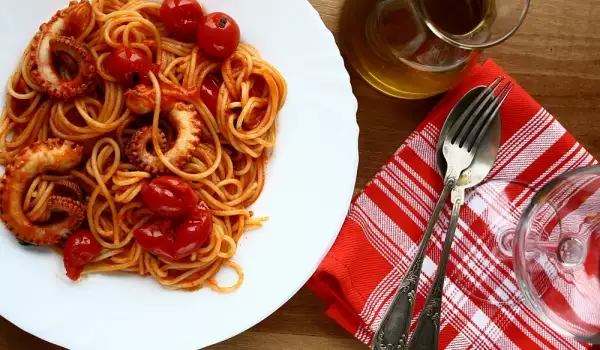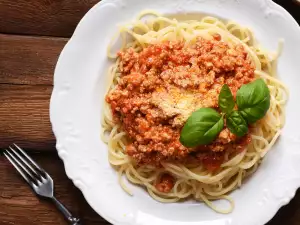Spaghetti, as well as the majority of other Italian pastas, have become a part of world cuisine and a preferred dish at our dining table. They are a wholesome bread substitute, plus they are quick and easy to make. But for a bowl of spaghetti to taste excellent, it's important to know not only the type of sauce to serve but how and how long to boil them.
But the truth is, even though they're quite high in calories, spaghetti are a food easily digested by the body. To avoid packing on extra pounds from them though, it's crucial to know how to boil them properly. Here's what's important in this regard:
1. Spaghetti are starchy foods, which means it's important to boil them in plenty of water to get the starch out of the product. Ever 3.5 oz (100 g) of spaghetti need no less than 4 1/5 cups (1 L) of water.
2. The water in which you'll be boiling the spaghetti needs to be lightly salted and to have already come to a boil when you put the spaghetti in. Otherwise, they'll turn mushy.
3. Italians don't normally put oil in the water they're boiling their spaghetti in but if you like you can add a little olive oil, as well as spices. Spaghetti taste best with oregano and basil.
4. Be sure to follow the boiling time listed on the package. It depends on what the spaghetti themselves are made from, as well as the method of preparation and their thickness.

5. Once you put the spaghetti in boiling water, cover with a lid until they boil.
6. You don't need to break them because they will soften quickly and fit in the pot you're cooking them in.
7. Once they come to a boil, remove the pot's lid. Once they're ready, place them in a colander to drain them.
8. Keep in mind that Italians like their spaghetti a little more on the raw side, so if you want to make true Italian spaghetti al dente, then follow their methods.
9. Also don't forget that spaghetti need to be served warm with a sauce. This means that if the sauce you intend to serve them with takes more time to make, it's a good idea to start with it and start boiling the spaghetti afterwards.




















Comments